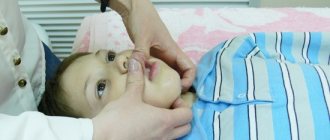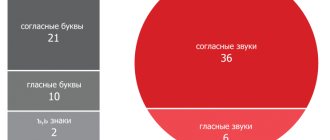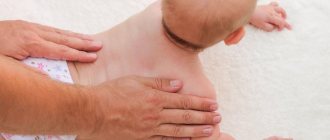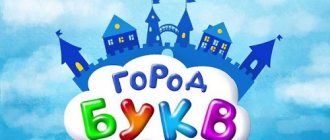Questionnaire (history collection) methodological development on speech therapy on the topic
Questionnaire for parents
1. Last name, first name of the child_____________________________________________
2. Age_______________________________________________________________
3. Reason for contact. Parental complaints______________________________
________________________________________________________________
4. Full name parents, date of birth, home address, telephone number, position, place of work
mother:____________________________________________________________________________________________________________________________________________________________________________________________________________________________________________________________________
__________________________________________________________________
father:____________________________________________________________________________________________________________________________________________________________________________________________________________________________________________________________________
__________________________________________________________________
5.Family history:
illnesses of parents; alcoholism; addiction; left-handedness: forced, pathological, hereditary; did either parent attend a speech therapy group:_____________________________________________
______________________________________________________________________________________________________________________________________________________________________________________________________
6. During pregnancy:
Mother's age at the time of birth_________________
From what pregnancy? ____________________________________
How were the previous ones completed?______________________________________________
Toxicosis (in which half of pregnancy?)___________________________
Rhesus conflict (yes, no)?___________________________________________
Threat of miscarriage (due date)?___________________________________________
Diseases suffered during pregnancy______________________
__________________________________________________________________
7. Childbirth:
What week?_________________________________________________
Obstetrics (forceps, caesarean, stimulation, extrusion)____
____________________________________________________________
Duration__________________________________________________________
Asphyxia (umbilical cord entanglement)__________________________________________
Fetal position_________________________________________________
8. Postnatal period:
Apgar score________________________________
When did you scream? _________________________________________________
Height at birth ____________________Weight_______________________
When was it applied to the breast?_____________________________________________
Feeding (breastfeeding, artificial, donor)______________________
Regurgitation, leakage from the corners of the mouth______________________________
On what day were you discharged from the maternity hospital ________________________________
Did you use a pacifier (if so, until what age)?________________
9. Development of a child up to three years of age:
Behavior________________________________________________________
Dream_____________________________________________________________
Psychomotor development:__________________________________________
began to hold his head _______________crawl________________________
sit ________________ get up ________________ walk ____________
The appearance of the first teeth ________________________________________________
Diseases. Observation of specialists (cardiologist, neurologist, ENT,
nephrologist and others) _____________________________________________
Speech development of the child:_____________________________________________
humming ______________babbling ____________first words _____________
speech in phrase _____________________________________________________
Self-care skills_______________________________________________
10. Child development after three years:
Diseases__________________________________________________________
Was speech development interrupted/if interrupted, for what reason?
how long did it last, with what consequences/__________________________
________________________________________________________________
How quickly did your vocabulary grow? ____________________________
Does the child care facility visit ___________________________________
Play activities ______________________________________________
Favorite toy ________________________________________________
Does he use toys for their intended purpose?________________________________
Contact information _____________________________________________________
11. What help can you provide to a speech therapist? (sew (cash), knit, weave, make some kind of aid: from paper, wood………………) _____________________________________________________________________________________________________________________________________
We guarantee confidentiality.
(bring the completed application form in an envelope)
Delayed speech development
Encephalitis
Jaundice
4118 08 April
IMPORTANT!
The information in this section cannot be used for self-diagnosis and self-treatment.
In case of pain or other exacerbation of the disease, diagnostic tests should be prescribed only by the attending physician. To make a diagnosis and properly prescribe treatment, you should contact your doctor. Delayed speech development: causes of occurrence, what diseases it occurs with, diagnosis and treatment methods.
Definition
The formation of the human nervous system begins in the early stages of intrauterine development. Along with the development of the nervous system, the formation of the human psyche occurs. Mental activity belongs to higher nervous activity and requires the participation of many brain structures for its implementation.
Speech is one of the types of higher nervous activity that is inherent only to humans, and speech skills begin to develop when a child finds himself in an environment where people communicate with each other.
The younger the child, the more intense the development of his mental functions, including speech.
Delayed speech development is understood as a slowdown in the acquisition of speech skills and mastery of speech compared to average age indicators. In most cases, severe speech delay is accompanied by impaired visuospatial skills and/or motor clumsiness. Improvements in speech development may occur as the child gets older, but mild deficits often remain lifelong. According to doctors, delayed speech development is more common in boys than in girls.
Types of speech delay
Speech development can be disrupted as part of global mental disorders, in which all areas of higher nervous activity are affected, or it can be isolated or selective, i.e. Of all mental functions, only speech is impaired.
Speech development may lag behind in a child from the very first stages of the formation of this mental function, or it may slow down or stop after a period of relative well-being, when the formation of speech skills did not cause concern (Landau-Kleffner syndrome).
Possible causes of speech delay
For normal speech development, the coordinated work of many structures of the body is necessary, in particular the organs of hearing, vision, muscular system, maxillofacial structures, organs of the respiratory system and, of course, the nervous system.
From the first months of life, the child watches the people around him, hears the sounds of speech and observes articulation. The first attempts to master verbal speech appear, as a rule, in the second or third month of life in the form of humming, later the child tries to pronounce consonants, individual simple syllables, which result in babbling. In the process of further mastering speech and observing the surrounding adults, the child tries to attach certain intonations to the spoken syllables. Later, from about the 9th month of life, the child makes his first attempts to pronounce the simplest words. However, the child begins to correlate the word and its meaning later. In the second year of life, the vocabulary is enriched, the child gradually masters the simplest phrases, and at the age of 3–4 years, more or less long monologues and statements appear in the child’s speech.
The formation of speech is a complex process, so any unfavorable factors acting on the child’s body can disrupt it and lead to delayed speech development.
First of all, the development of verbal speech is affected by diseases of the nervous system and sensory organs.
Damage to the facial muscles involved in the act of articulation also has an adverse effect and complicates the development of speech.
Another possible reason for the late development of speech skills is insufficient communication between parents and the child, as well as bilingual families where family members speak several languages.
What diseases may cause speech delay?
- The leading role in pathological delay in speech development is played by mental disorders - psycho-emotional deprivation, autism, selective mutism.
- A delay in speech development or the inability to master speech skills is observed in children who have suffered severe perinatal brain damage. Such injuries include cerebral palsy, fetal hypoxia, cerebral hemorrhages, intrauterine infections, etc.
- Delayed speech development can result from postnatal damage to brain cells due to the development of nuclear jaundice, meningitis and meningoencephalitis and other diseases of the central nervous system.
- Hearing impairments that do not allow the child to perceive verbal speech (for example, congenital deafness as a result of intrauterine infections, genetic diseases, toxic effects of various substances on the human body, or postnatal otitis media) always delay speech development up to complete muteness.
- Malformations of the maxillofacial apparatus.
- Diseases of the larynx and parts of the respiratory system involved in the process of voice formation.
- Hereditary metabolic diseases leading to a delay in all areas of the child’s psychomotor development, for example, phenylketonuria, glycogenosis, tyrosinemia and others.
- Chromosomal syndromic diseases, such as Down syndrome.
- Chronic severe somatic diseases leading to malnutrition of brain cells, for example, severe liver failure, cystic fibrosis, congenital heart defects, digestive disorders, etc.
Which doctors to contact if there is a delay in speech development
Examining a child with a delay in speech development is not an easy task, since the doctor must assess whether any other areas of higher nervous activity are impaired (play skills, attention, reasoning, orientation, etc.), and also conduct a full examination in order to confidently exclude (or confirm) the secondary nature of speech development disorders against the background of other somatic or neurological diseases. That is why such patients, as a rule, are managed by a team of doctors, including a speech therapist and other specialized specialists.
Diagnostics and examinations for delayed speech development
In case of delayed speech development, instrumental diagnostic methods come to the fore.
- Neurosonography is a method of ultrasound examination of intracranial structures, widely used in newborns and children in the first month of life, to identify organic disorders in the brain and surrounding structures.







